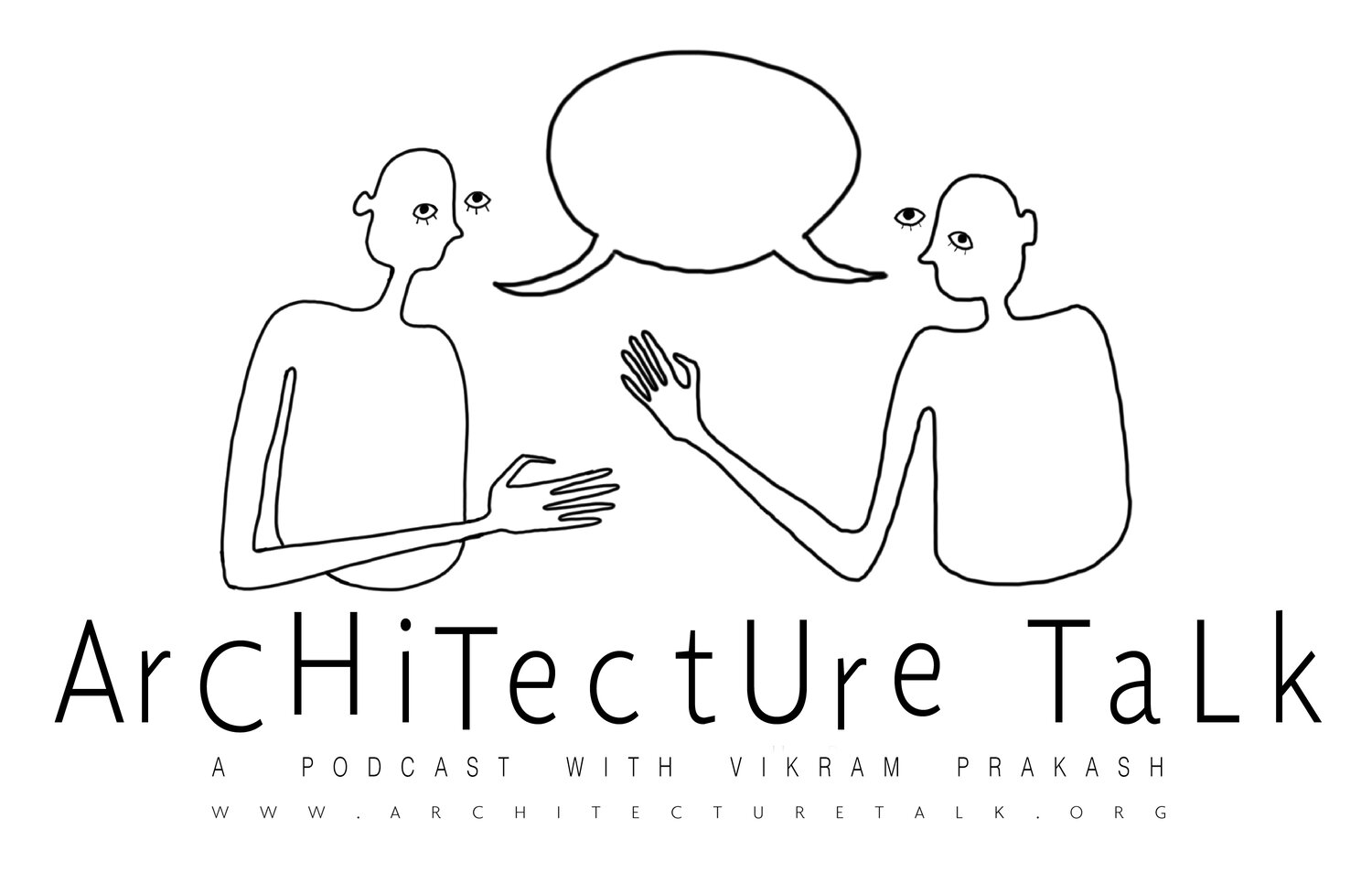91. Posthuman Humanism, Spirituality, and the Impressions of Childhood with Michael Benedikt
Original Drawing by Tori Haynes
“In my view posthumanism is still humanism...because for us to turn around and say that trees matter and spiders matter and rivers matter is a tribute to being human to be able to do that because spiders don’t do it, rivers don’t do it...humans do it. It’s a noblesse oblige...this is what we owe: we’re not the only living things. This is a triumph of humanistic thought.” Michael Benedikt
“And It’s a fascinating triumph because it involves, in part, its own deconstruction.” Vikram Prakash
This week, we sit down with Michael Benedikt, the 2004 ACSA Distinguished Professor at the University of Texas at Austin School of Architecture. In this fascinating and meandering conversation, Vikram and Michael discuss the impressions of childhood on our adult life, inter-subjectivities and the force-relations of things, spirituality in architecture, and posthuman humanism.
Timestamp Outline
1:00 Introducing Michael Benedikt, Distinguished Professor at University of Texas at Austin, School of Architecture.
1:15 His most recent book: Architecture Beyond Experience (2020)
2:45 “When a book is written, who writes?” VP in regards to authorship and how influences and references shape the way we think when writing.
3:00 Discussion of how ideas come through you and the inter-subjectivity of “authorship” and “originality”
3:45 Jacques Derrida
4:30 Existentialism in regards to authorship
4:45 “I think each generation step into a certain responsbility to be an authority to the next generation...There’s this strange truth that, often the people who we think are great (the Newtons and the Descartes and so on) often come after some unknown who actually came up with these brilliant ideas...The people who bring these ideas into the public realm are actually not the people who invented these ideas.” MB
6:10 Grammatology
6:30 Posthuman humanism
6:55 “In my view posthumanism is still humanism...because for us to turn around and say that trees matter and spiders matter and rivers matter is a tribute to being human to be able to do that because spiders don’t do it, rivers don’t do it...humans do it. It’s a noblesse oblige...this is what we owe: we’re not the only living things. This is a triumph of humanistic thought.” MB
7:30 “And It’s a fascinating triumph because it involves, in part, its own deconstruction.” VP
9:00 discussion of Talmudic Buddhism
10:30 discussion of treating oneself as a corporation
11:30 “I think architects are in the business of manufacturing sacred space...we use all the cliches of sacrality...tall spaces, mysterious light, extreme cleanliness, sublime simplicity...there are all sorts of gestures we make that are sort of echoes of our religious beliefs.” MB
12:40 “My book points out the other tradition which seeks divinity in communality…in relations...in the idea that God is love, God is immanent...so the notion that divinity inheres in the relations between people, I would say also the relations between people and animals, plants...this idea can also apply to buildings themselves, quite apart from people, which is to say relations between rooms.” MB
14:00 See Louis Kahn’s article The Room, The Street, and Human Agreement and an example of this philosophy here. “A plan is a society of rooms.”
14:46 “If a plan is a society of rooms, that means that all the categories that apply to social organization actually apply to buildings. A building is a social organization.” MB
16:08 “I’ve tried to convey to students that when you put two chairs in a room together, they’re already in conversation, even when you leave the room.” MB
16:30 Marion Vriesendorp’s drawings for Delirious New York by Rem Koolhaas
16:40 Triple O theory, also known as Object-Oriented Ontology
17:00 Learning from Las Vegas, by Robert Venturi, Denise Scott Brown, and Steven Izenour
17:05 Charles Jencks
18:30 Discussion of fashion and its intersections with architecture
24:10 “I think architects are constantly in the business of defending refinement or defending connoisseurship.” MB
24:40 Gresham’s Law: “Bad money drives out good money.”
25:53 “The presentation of quality is not the same as the existence of quality. It’s like value engineering where you go to where the value is perceptible then you drain the rest.” MB
27:10 discussion of the “cult of experientialism”
28:48 “Conviviality is in fact a sacred notion. Con-viviality is ‘living-with.’” MB
29:47 Atman as self, which is that which surrounds you (as in atmosphere)
36:00 Chandigarh, India
42:30 “I think we all bring our childhoods with us, especially architects. I think our architectural sensibilities are formed when we are quite young... And as a grown designer, part of you is trying to return home.” MB
46:30The Science of Place







